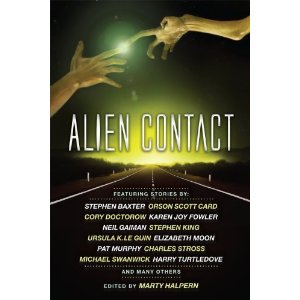I have been assiduously working on the rewrite of the book I mentioned in the previous post and not much else has gotten done. I’m 3/4 through and into the difficult part, where the plot actually veers, and I’ve been thinking about game changers as a result, which brings me in a painful arc to…
Newt Gingrich? Are you serious?
I have no idea who the Republican nominee will be by the end of August 2012. It’s too soon to make solid predictions. One thing has been clear, once again, the sensible candidates will not have a prayer. (I say that ironically.) Oh, it’s possible Huntsman could be a dark horse that comes on strong in the final weeks before the Convention, but it is also quite obvious that Party as it is currently configured has no use for him. He does not speak for the GOP base. He is not enough of anything they currently value.
But then again, Newt isn’t, either. He’s made a bit of a deal about how he worked with Clinton—and this is true, he did; compared to the current menagerie in Congress, Newt led a House that was a model of bipartisanship —but that is not usually something the GOP base wants to hear. Cooperation with the antichrist is a Bad Thing.
And his claim is a smidgen disingenuous. After all, he did lead Congress into a government shut-down that cost his Party seats in the next election. That may, paradoxically, work in his favor this time, since GOP orthodoxy today is that, above all, get Obama out of the White House. They will hold their collective noses, it seems, and back any candidate that looks capable of achieving that. The vitriol among the Party faithful spewed at President Obama is worse than the worst aimed at Clinton, and some of that was pretty awful. Alien acid-blood awful, with the power to eat through steel deck plating. This year’s version of the GOP is establishing new levels of the kind of ideological obsession that has gripped them since Clinton beat Bush One, namely a pervasive, near-pathological hatred of all things (A) Liberal and (B) Democratic.
I hasten here to say that there are many conservatives who have a very hard time with this.
There are many liberals who are still stumbling around, shell-shocked from the last 30 years of being a punching bag for a Right Wing that has beaten them so badly about the head and shoulders for being, you know, Liberal, that they seem unable to recognize that we haven’t actually elected a Liberal president since Carter. In a recent Thanksgiving Day conversation with an older gentleman, he was adamant that Obama was a far Left Liberal if not an outright Communist. When I ran down the list of things that make him Center Right, I was met with a kind of blank stare. He agreed singly with each point but, like a tape loop, kept insisting Obama was a Liberal.
Obama’s policies are geared directly toward alleviating the difficulties of the rich, only with some mollifying rhetoric to make it seem he’s about fiscal equality. He sells it with a somewhat more worker-friendly line of patter, but I’m still waiting for any kind of financial regulatory policy with teeth. In spite of his avowed revulsion as a candidate for the abuses at Guantanamo and the anti-civil rights policies of his predecessor, he keeps renewing the Patriot Act and Gitmo is still open and he has just signed off on a policy of holding enemies of the state without limit. He has backed down on his support of Net Neutrality and I’m still trying to make sense of the whole health care package—which, except for one provision, is an essentially Republican proposal from over a decade ago (which they now repudiate rather that give Obama a win on anything) and even that he has sold badly to an electorate that would have backed him had he gone to the mat for single payer. This is not a Liberal.
And yet.
What is it the GOP wants?
I don’t honestly think they know. They have characterized the Democratic Party for a long time now as a Party that only ever reacts, never actually steps up and says what it stands for, but I wonder if that hasn’t become the problem with the GOP. After all, what do they stand for?
There’s a standard set of positions which are becoming strained and a bit threadbare, but still play well to the base. Some of them are best characterized by Rick Santorum, who also hasn’t a prayer for the nomination but they like him running because he says right out there all the ugly little social things the rest of them are finally beginning to realize don’t play well with independents and moderates (which both sides need in order to win). The GOP actually does seem to believe women are second class citizens who should be remanded to the custody of the home—which is probably why they have yet to produce a single credible female presidential candidate who is not a basket of lunacy in a nice wrapper. Where’s the GOP counterpart to Hilary Clinton? While their rhetoric may allow for one, their actual policies won’t. (What sane, educated, intelligent woman with any self- esteem could back the systematic war on womens rights the GOP has been tacitly waging since Reagan? Well, obviously some do, but I wonder how they make that work.)
The Santorum faction simply doesn’t want anyone to be Different. (He also doesn’t want people to have sex. I mean, really. Have you ever listened to any of his interviews when he gets on that subject?)
Now the GOP has decided to take a hardline position on immigration, so much so that the amnesty plan Bush Two proposed would be anathema today, so they have even turned on their own heroes. (Seriously. When you go back and listen to Reagan’s comments on wealth inequality and unions you wonder if he would even be let on the stage today. He sounds like a Liberal!)
Via the Tea Party faction, the GOP has concretized around a kind of do nothing for anyone unless they can afford to pay for it agenda. The almost criminal assault on collective bargaining that occurred in Wisconsin has backfired a little, but I don’t hear any of the candidates (except for the sensible ones who no one will have to worry about) repudiating Governor Scott’s tactics.
Yes, I know, he had a budget shortfall. But he didn’t when he took office—the money he claimed he needed to save was money he gave away in three huge tax cuts to corporations. He established the tax cuts, which created the fiscal problem, and then tried to blame the unions. This time, a lot of people were paying attention.
But no one in the GOP (except Christie, but he’s not running for president) said he was wrong.
So the GOP seems to have, in practice, a platform that is anti-union, anti-woman, anti-gay, anti-blue collar, anti-immigrant, and anti-serious tax reform. They are opposed to so much I can no longer discern clearly what it is they stand for.
Family values? Then what’s this wink-and-a-nod stuff over Herman Cain’s sexual harrassment issues or even over Newt’s track record of divorce-and-marry-the-mistress?
Fiscal responsibility? Then what is with the continued coddling of large corporations that are clearly removing wealth from this country and the repeated evisceration of every pro-consumer bill brought to the floor?
I don’t know what else there is. Under Bush they demonstrated how little regard they have for science and education. (No Child Left Behind is a farce and the blatant interference with environmental impact studies was endemic.) All they care about, it seems, is some kind of Thomas Edison view of entrepreneurs that quite honestly never really existed.
What they actually stand for is the principle that their constituency doesn’t want to pay for anything. Not through the government, in any case. They do not wish to pay for education. They do not wish to pay for keeping the environment clean. They do not wish to pay for the unemployed, the elderly, the sick. Hell, they don’t even want to pay for the damage done to soldiers with combat disabilities. (To be fair, that’s not a strictly Republican problem—we have always had a problem paying for our broken soldiers, no matter which Party is in power.)
All you hear from them is spending cuts and tax cuts. Cut cut cut.
What do they want this country to look like when they get their way? I haven’t heard that. Not in any real way. They talk about individual self-reliance, but come on, does anyone anymore believe that happens without a lot of, ahem, community support? Oh, but it should be voluntary, not mandated.
Well, sir or madam, if you don’t want to pay for it and I can’t pay for it, where does that leave us?
I need to get back to my book now.




